Mini Implants offer an efficient, minimally invasive, and cost-effective solution for replacing missing teeth. Their compact size and gentle implantation process minimize pain and promote rapid healing. This is an ideal choice for individuals with low bone density, providing a confident smile and comfortable chewing function. Let’s delve deeper into mini denture implants to find the right restorative solution for you!
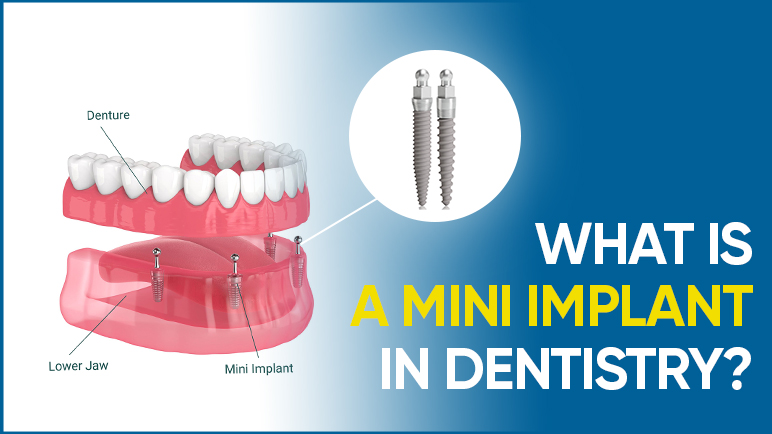
What is a mini implant in dentistry?
Mini dental implants are, quite simply, smaller versions of traditional dental implants. These innovative solutions cater to specific patient needs, especially when bone density is limited or traditional surgery carries unnecessary risks.
The Structure of Mini Dental Implants
The defining characteristic of mini dental implants lies in their size. With diameters typically ranging from 1.8 to 3.3 mm, they are considerably smaller than conventional implants, which generally measure between 3.5 to 13 mm. This reduced diameter allows for easier placement in areas with insufficient bone volume.
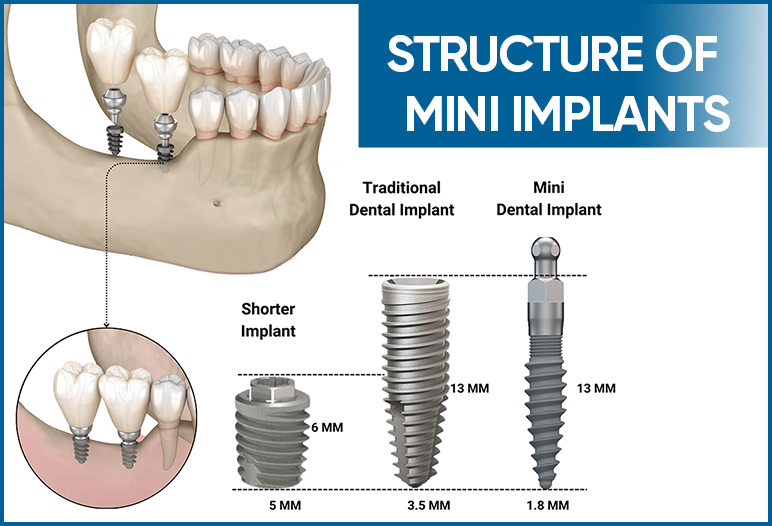
Mini implants consist of three essential components:
- Implant Fixture: This titanium post is surgically inserted into the jawbone, acting as the root of the implant. Its threaded design enhances stability and promotes osseointegration—the process by which the implant fuses with the surrounding bone tissue.
- Abutment: Serving as the connection between the implant fixture and the restoration (crown, bridge, or denture), this component is often visible above the gum line.
- Restoration: This is the artificial tooth or teeth that replace those that were lost, attached securely to the abutment and providing both functional and aesthetic value.
Types of Mini Dental Implants
While mini dental implants share fundamental similarities, variations exist that cater to specific needs and applications. Here, we discuss two primary types of mini dental implants.
Endosseous Implants
Endosseous mini dental implants represent the most common type of mini implant. Embedded directly into the jawbone, these implants mirror traditional implants in function but differ in size.
Their smaller diameter allows for easy placement in areas with limited bone volume. Typically used for single-tooth replacements or stabilizing dentures, endosseous implants offer a reliable foundation for restorations that blend seamlessly with natural teeth.
The stability provided by endosseous implants enables patients to regain full chewing function while maintaining improved aesthetics and comfort.
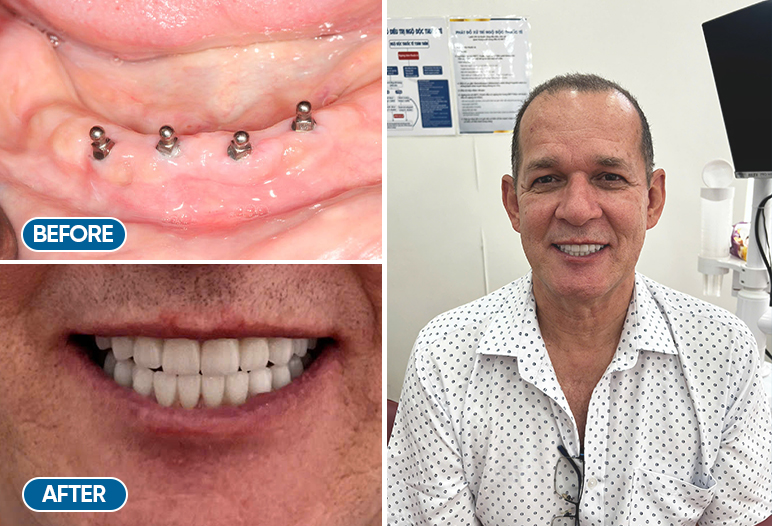
Subperiosteal Implants
Subperiosteal implants are positioned differently than their endosseous counterparts. Instead of being embedded into the jawbone, they rest atop the bone beneath the gum tissue.
This approach is particularly beneficial for patients with severe bone loss, as it avoids the complications associated with extensive bone grafting procedures. A framework attaches to the subperiosteal implants, onto which dentures are anchored, ensuring a secure and stable fit.
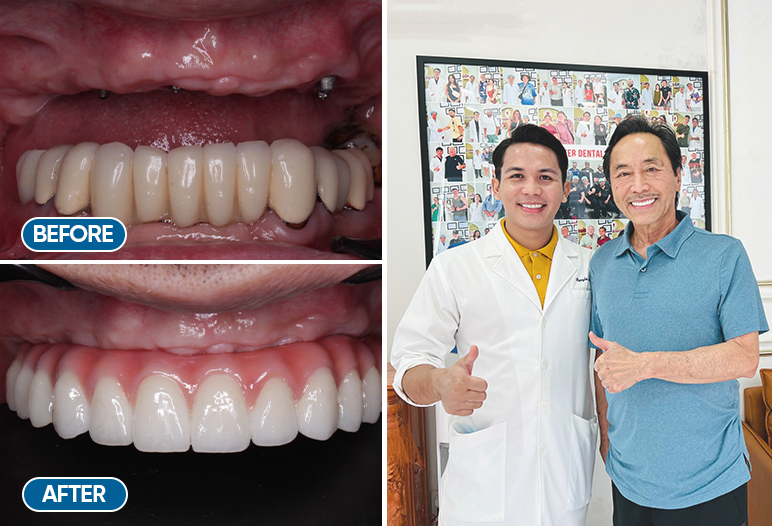
The selection between endosseous and subperiosteal implants depends on each patient’s specific needs, the condition of the jawbone, and treatment objectives. Consulting with a skilled implant dentist is crucial for determining the best course of action.
Differences Between Mini Implants and Traditional Dental Implants
When choosing between mini dental implants or micro dental implants and traditional dental implants, several key distinctions can help guide the decision.
| Comparison Criteria | Mini Implants | Traditional Dental Implants |
| Size | Diameter: approx. 1.8 – 3.3 mm | Diameter: approx. 3.5 – 6 mm |
| Surgical Process | Less invasive, usually no bone graft needed, surgery time: 30-60 mins | More complex, may require bone grafting, surgery time: 1-2 hours |
| Bone Density Requirements | Suitable for areas with low bone density (thin or deteriorated bone) | Requires healthy bone, minimum 10 – 12 mm bone height |
| Cost | Approx. $500 – $1,500 per implant | Approx. $1,500 – $6,000 per implant |
| Recovery Time | 1-2 days, depending on the invasiveness | 3-6 months, requires osseointegration (bone fusion) |
| Applications | Single-tooth replacement, denture stabilization | Replacing multiple teeth, bridges, and complex full-mouth restorations |
| Success Rate | Around 90-95% | Around 95-98% |
| Longevity | Typically lasts 10-15 years | Can last 20+ years with proper care |
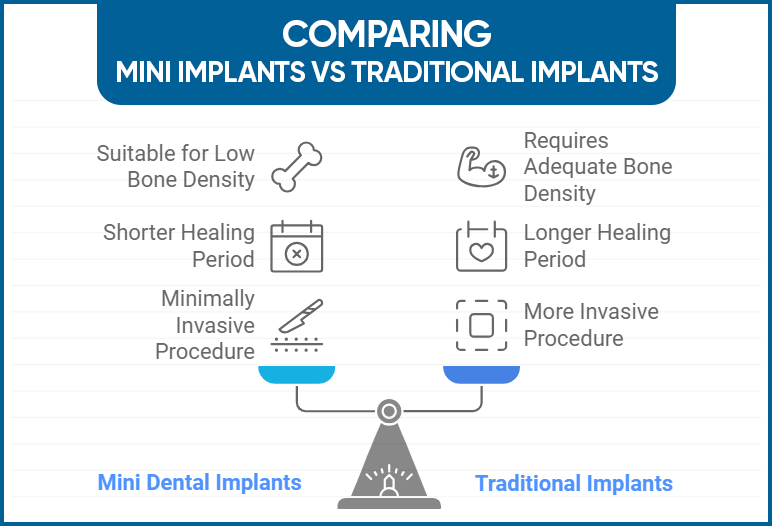
Ideal Candidates for Mini Dental Implants
Mini dental implants are particularly well-suited for:
- Individuals seeking tooth replacement with inadequate bone density
- Patients desiring a minimally invasive treatment that requires shorter healing times
- Those looking to stabilize dentures, enhancing comfort and functionality
By recognizing these characteristics, patients can better understand whether mini implants might serve as a viable solution for their dental needs.
Benefits of Mini Dental Implants
Mini dental implants present a plethora of advantages, particularly for patients who may find themselves facing challenges with traditional dental solutions. Let’s delve deeper into some of these benefits.
Minimally Invasive Procedure
One standout feature of mini dental implants is their association with a minimally invasive surgical procedure. The smaller dimensions of these implants allow for smaller incisions, translating to less trauma to the surrounding tissues.
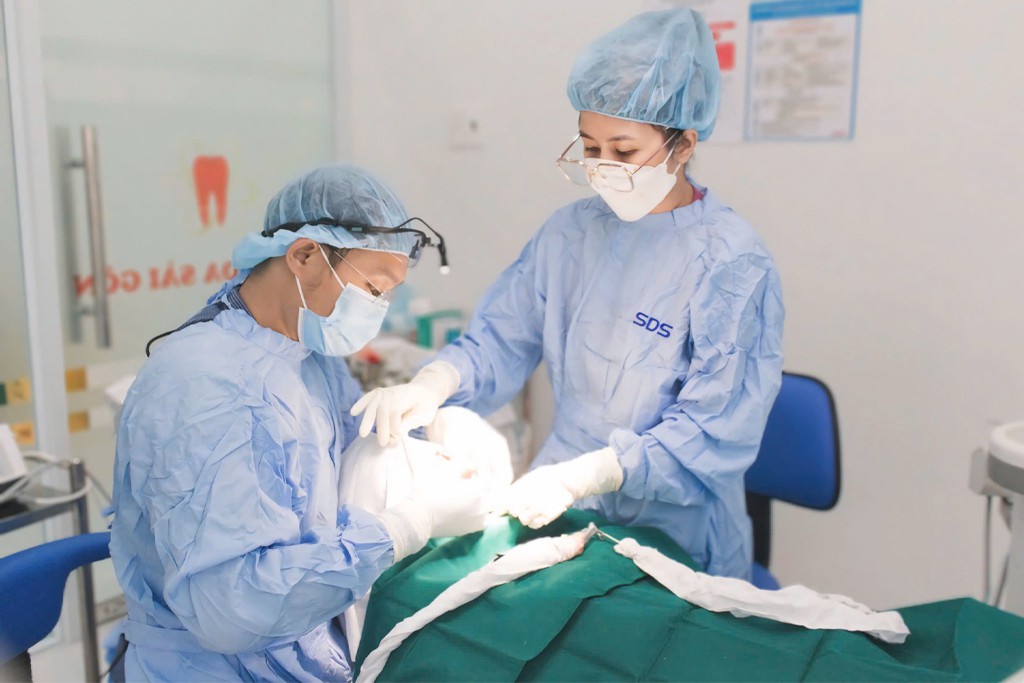
Patients often report lower levels of discomfort following the procedure compared to traditional implants. This advantage is particularly appealing for those with anxiety about surgical interventions, such as elderly patients or those with pre-existing medical conditions.
Additionally, the shorter duration of the surgical procedure means less time spent under anesthesia, which can further enhance the overall experience for patients who may have reservations about lengthy operations.
Shorter Healing Period
Mini dental implants offer the key benefit of a remarkably shorter healing period before attaching the final restoration. Since the surgical intervention is less invasive, many patients find that they can return to their regular activities much sooner than they would after receiving traditional implants.
This accelerated healing timeline can significantly improve quality of life for those eager to restore their oral function and aesthetics. For patients seeking swift solutions, mini implants offer a compelling case for consideration.
Reduced Need for Bone Grafting
A common obstacle encountered in traditional implant procedures is the requirement for bone grafting when there is insufficient bone density. This can complicate the treatment plan and increase costs, not to mention prolong the overall process.
Mini dental implants can often bypass the need for bone augmentation due to their smaller size. By integrating successfully into areas with less bone density, these implants streamline the treatment process, saving both time and financial resources.
This feature makes mini implants especially attractive for older adults or individuals suffering from atrophy related to prolonged denture use or other health issues leading to bone loss.
Cost-Effectiveness
In terms of affordability, mini dental implants frequently come out on top compared to their traditional counterparts. The lower material costs associated with smaller implants and the abbreviated surgical procedures lead to reduced treatment expenses.
This affordability factor can broaden access to dental care, allowing more patients to seek solutions for missing teeth without breaking the bank. Furthermore, the potential for fewer preparatory procedures, such as bone grafting, makes mini dental implants an economically sound choice for many.
![]() A detailed treatment plan and personalized quote from a Dentist at Saigon Dental Implants Center!
A detailed treatment plan and personalized quote from a Dentist at Saigon Dental Implants Center!
Enhanced Stability for Dentures
For patients relying on dentures, mini dental implants can dramatically improve retention and stability. Traditional removable dentures often pose challenges, such as slippage or discomfort during eating and speaking.
By anchoring dentures with mini implants, patients can enjoy a more secure fit, boosting their confidence and enhancing overall function. A stable denture solution can break free from the stigma and discomfort often associated with traditional removable options, leading to a higher quality of life.
Treatment Option for Patients with Limited Bone
As mentioned earlier, one of the primary draws of mini dental implants is their compatibility with patients who have limited bone density. For older adults or those experiencing significant bone loss, these implants provide a valuable opportunity to regain oral function without the daunting prospect of bone grafts or complex surgeries.
This distinction reinforces the importance of personalized treatment plans, as every individual’s dental situation is unique. Mini implants ensure that even those facing the greatest challenges can still explore effective tooth replacement options.
Conclusion
In summary, mini dental implants offer a valuable and versatile solution for patients seeking to restore missing teeth. Their minimal invasiveness, shorter healing times, cost-effectiveness, and ability to accommodate limited bone density make them an excellent option for many individuals.
However, as with all dental treatments, careful consideration and consultation with a qualified dental professional are essential. By understanding what a mini implant in dentistry entails, patients can make informed choices about their dental care and pursue the path toward a healthier, more aesthetically pleasing smile.
Whether you’re exploring options for mini dental implants, mini denture implants, or a full mouth mini dental implant solution, remember the importance of collaboration with a skilled mini implants dentist. Your journey to reclaiming your smile starts with understanding your options and making choices that align with your unique needs and goals.

 Google Reviews
Google Reviews Call
Call
SAIGON IMPLANT CENTER
Best dentist in Vietnam
Saigon Implant Center - Dental Clinic utilizes the latest technology for specialized treatment in the field of Single implant, full jaw implants, All on 4 implants, All on 6 implants, Zygoma implant....
SAIGON IMPLANT CENTER
Best dentist in Vietnam
Saigon Implant Center - Dental Clinic utilizes the latest technology for specialized treatment in the field of Single implant, full jaw implants, All on 4 implants, All on 6 implants, Zygoma implant....